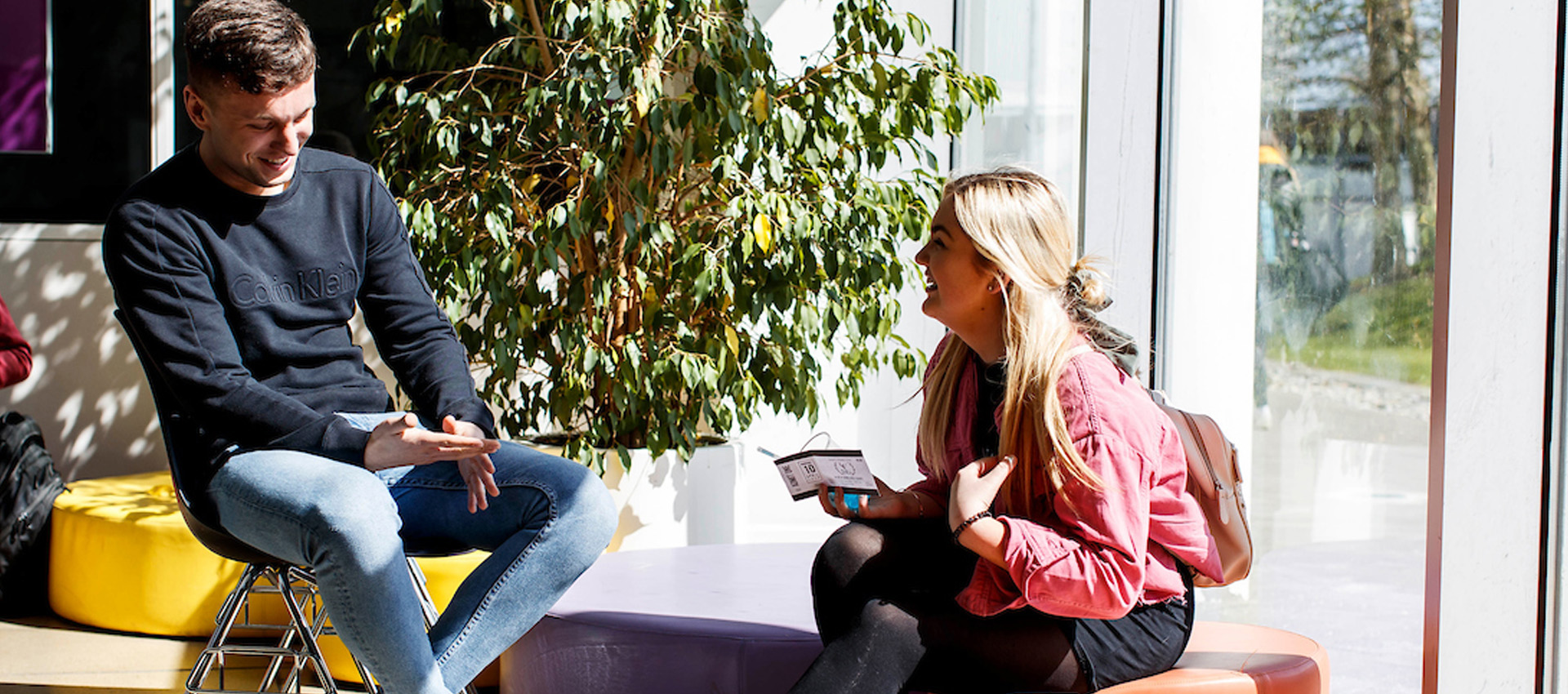Searching for your own place in Dublin can take a lot of effort and can be stressful. To help you out, we've put together some useful information. Around our TU Dublin campuses, you'll find a range of private apartments and houses. These are rented out by private landlords and are a good choice if you want to live with friends. You can look for these kinds of homes on websites like daft.ie, rent.ie, or property.ie
We advise against booking private rental accommodation before arriving in Ireland, as it's much safer to secure your housing in person to avoid scams. It's a good idea to organise temporary accommodation for the first two weeks in Dublin. This way, once you're in the city, you can personally attend property viewings and make an informed decision about your new home.
Things to Consider:
Pros:
- You can usually pay your rent every month.
- You get to pick who you live with and set up your home your way.
- The lease often lasts 12 months or more.
- It can be cheaper than living in student housing.
Cons:
- You need to be in Dublin to look for your place.
- International students you should arrive before your classes start to have time for house hunting.
- It takes time to find the right place and arrange viewings.
- It can be tough to concentrate on your studies while searching for a place.
- There's a risk of scams.
For a more detailed look at private accommodation options, including how to safely search and what to expect, read below to dive deeper into the information.
Smart Renting: Top Tips for TU Dublin Students
Here’s a condensed guide for students renting during college from the RTB:
- View Before You Commit: It’s crucial to see where you’ll live before signing a lease. With the rush of students looking for housing, don’t rush into the first option. Take the time to find the right fit for you.
- Legitimate Landlords and Agents: Confirm that your landlord has registered with the RTB. If dealing with agents, they must be licensed; verify this on the psr.ie register
- Basic Standards: Check that the rental meets the necessary standards. Local Authorities inspect properties to ensure compliance.
- Deposits: A landlord should only ask for one month's rent as a deposit. Get a receipt for any deposit you pay, and remember, paying in cash isn’t ideal.
- Understand Your Lease: If sharing, make sure everyone knows their rights and responsibilities as outlined in the lease.
- Rent Payments: By law, you shouldn’t pay more than one month's rent upfront, except in specific student accommodations where you may opt to pay more with the provider's agreement.
- Ending Your Tenancy: You can end your student accommodation tenancy with 28 days’ notice, with certain conditions.
- RTB Support: The RTB is there to help with any disputes and provides a Dispute Resolution Service for issues ranging from rent reviews to maintenance.
For more details on these points, including how to safely end a tenancy or retrieve a deposit, visit the RTB website or reach out to them directly for assistance.
The Garda website offers critical Rental Scam Awareness Advice to help you steer clear of fraudulent schemes. Ensure you're well-informed by visiting their Rental Scam Awareness section for essential tips and guidance.
Gain insight into your rights as a student tenant with Threshold's FAQ section, which provides clarity on the protections and entitlements you have while renting. Additionally, the Union of Students in Ireland offers a comprehensive FAQ to address common accommodation queries, and the Competition and Consumer Protection Commission details the various scams to be aware of, equipping you with the knowledge to navigate the rental landscape safely.
Be Vigilant: Avoiding Rental Scams
When searching for private rented accommodation, it's crucial to stay alert for rental scams, which are unfortunately all too common. Scammers may advertise real listings with their contact information, then make excuses for why they can't show you the property in person, such as claiming they are too busy or living elsewhere. They might send convincing photos, documents, or even keys, hoping you'll pay rent or a deposit upfront. The scam often comes to light only when tenants arrive at the property to discover it's already occupied. Always remember: if a rental deal seems too good to be true, it likely is. Always insist on seeing a property in person and conducting transactions through verified means.
Private Accommodation Resources
For those seeking student accommodation, the following websites can provide valuable information. Remember to apply the Smart Renting Tips we've outlined when searching:
If you're looking into privately renting a home while studying at TU Dublin, these websites might be helpful:
Alternative student accommodation is advertised on the TU Dublin StudentPad. Be sure to proceed with caution and due diligence when using these resources to find your new Dublin home.

